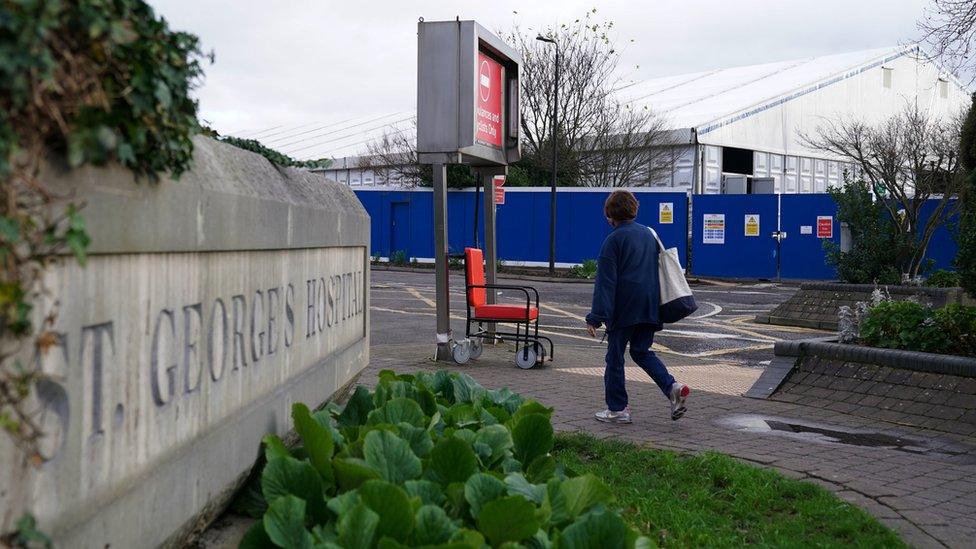Man whose testicles removed at London hospital loses High Court fight
- Published

The man brought the claim against St George's University NHS Trust
A man who had his testicles removed due to a flesh-eating bacteria infection has lost a High Court battle.
Stuart Dalchow, 55, brought a claim against St George's University NHS Trust after two operations for Fournier gangrene, a flesh-eating bacteria.
Deputy High Court Judge Hugh Southey QC ruled that while the trust had breached its duty, it could not be proved the breach "caused loss".
"I am sure that that conclusion will disappoint Mr Dalchow," the judge said.
During a four-day hearing in November, the High Court heard father-of-six Mr Dalchow had a "routine and uncomplicated" surgery to remove a 3cm (1.2-inch) cyst on his scrotum in April 2015.
The Chelsea football fan went to St George's Hospital in London early the next morning with severe pain and by about 08:30 had begun to lose sensation in his scrotum, the court heard.
In his judgement, Judge Southey said Mr Dalchow's treatment included being assessed by a doctor at 11:00 before being examined by a more experienced consultant an hour later.
The examination resulted in an antibiotic prescription that was not dispensed. "There is no dispute that this amounted to a breach of duty," Judge Southey said.
'Life-changing injury'
Mr Dalchow then had an ultrasound shortly after 15:00, and was reviewed again after 18:00, when he was diagnosed with necrotising fasciitis, taken to theatre for treatment of the flesh-eating bacteria, and had his right testicle removed, the court was told.
Less than three months later, he was readmitted and his left testicle was also removed.
While Mr Dalchow claimed a delay in administering antibiotics and carrying out an urgent ultrasound had contributed to his injury, he did not claim the necrotising fasciitis should have been diagnosed at 11:00.
The trust said that while it accepted there had been a breach of duty by not starting antibiotics at 12:00, it denied a breach over the speed of the ultrasound and said it would not have led to an earlier diagnosis.
In the judgement, Judge Southey dismissed Mr Dalchow's claim, saying: "Although it appears to me that breach of duty has been established, including breach of duty not admitted, it cannot be proved that the breach of duty caused loss."
Judge Southey said he found, on the balance of probabilities, that the claimant would not have been taken to theatre any earlier.
The court also heard that antibiotics alone are of limited use once necrosis starts.
"Mr Dalchow has plainly suffered life-changing injury following routine surgery when he developed Fournier gangrene," Judge Southey said.
"I hope that the trial process has helped him and all who treated him to understand what happened."